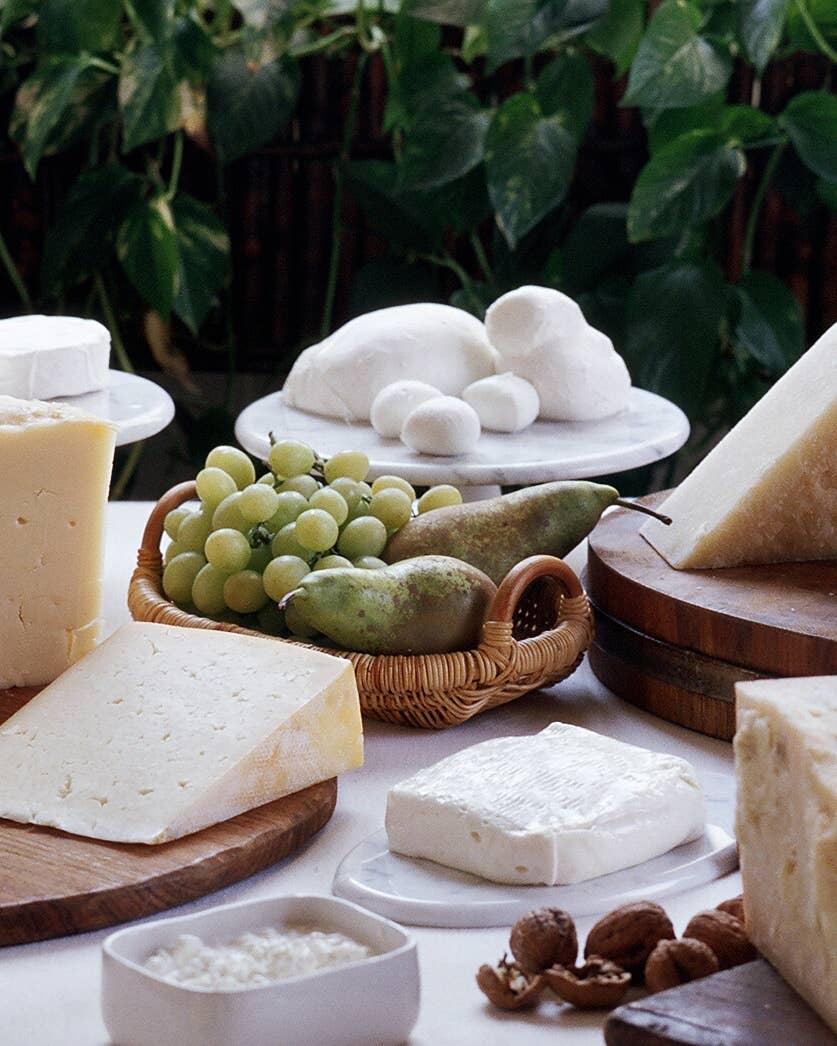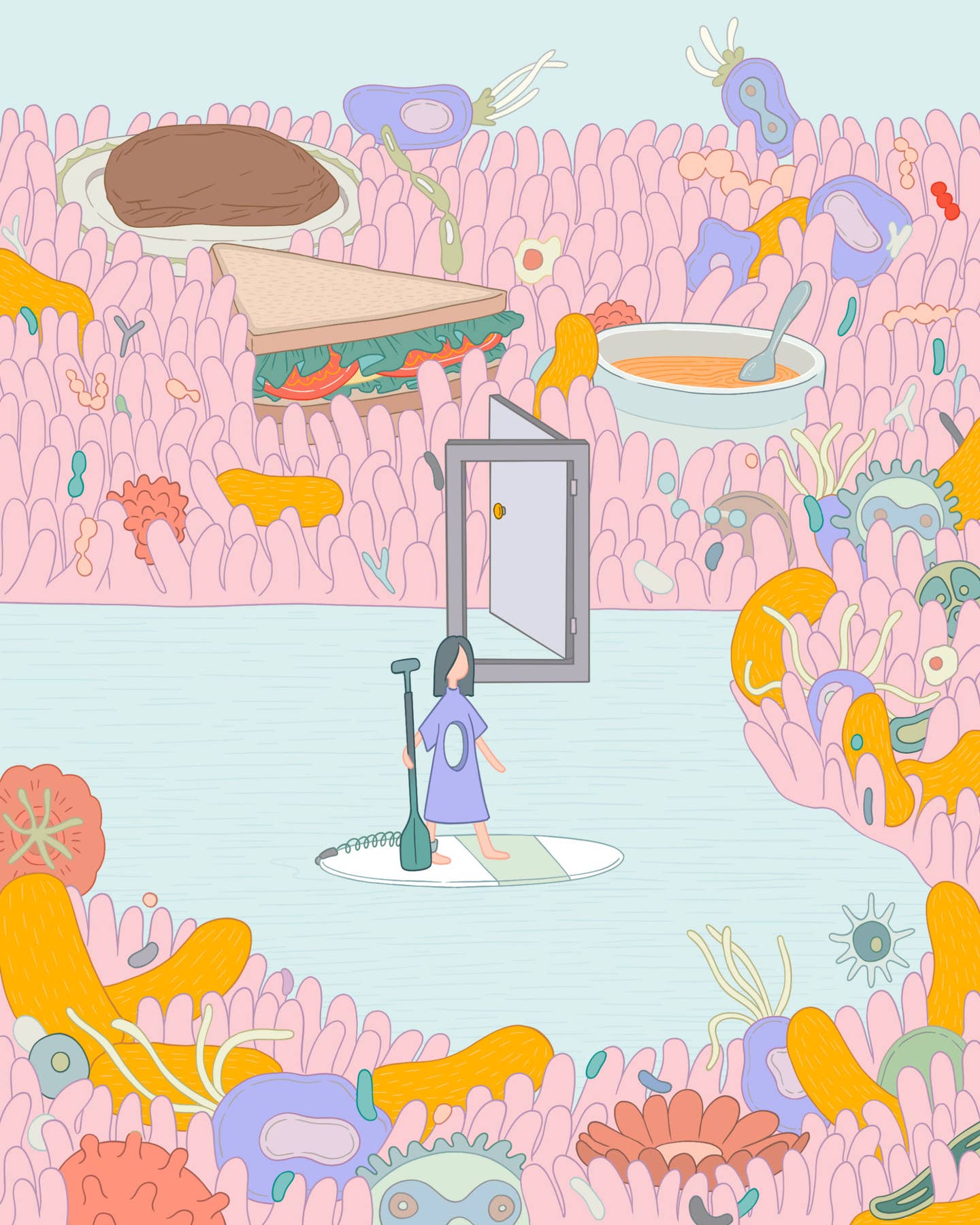
An Alaskan Fourth of July
At eleven o'clock in the morning on the Fourth of July, about 200 people gather along a sandy road near the Salmon River Bridge in Gustavus, Alaska, beneath a big, blue summer sky filled with white clouds. Down near the river, Matt Cahill, sporting tie-dyed blue-and-purple jeans and a Stars and Stripes hat, is good-naturedly coaxing a motley collection of paraders into something approximating a straight line. Then the all-woman Hootchie Blues Marching Band (flute, snare drum, clarinet, two saxophones, and kazoo) strikes up a tune and the parade begins, with Cahill—a part-time Gustavus resident—at the fore. Behind Cahill, an 8-year-old Boy Scout named Chris Trump marches with an American flag twice his size. A fire truck rolls by, filled with children laughing and waving flags, then come a flotilla of bikes, a couple of wanna-be Arabian dancing girls, and a dozen kids (from the Gustavus Library) waving from the back of a dark green '51 Chevy pickup. The parade winds on for a half a mile or so, then doubles back, and we follow it to a clearing. Here, Trump and park ranger Randy King raise Old Glory, and we recite the Pledge of Allegiance. Tradition dictates that, at this point, the crowd sing "The Star Spangled Banner"—but instead, voices break emphatically into "Alaska's Flag", the Alaskan state song, and then into "America the Beautiful". Why not? This is Alaska, after all; this is Independence Day.
The Fourth of July was always fun when I was growing up. My family celebrated at the beach with friends. We'd swim and sail and toss Frisbees, eat hot dogs and potato chips, watch wondrous fireworks explode in the darkened sky. Today, the holiday has grown too sedate for me, a calm day spent by the pond—civilized conversation, hors d'oeuvres, chilled white wine—and even the fireworks seem to go off at a safer distance nowadays. Maybe that's what happens when you grow up, but part of me misses the fun. Last year, then, when my friends Curtis Gruye and his daughter Christian invited me to spend the Fourth in southeastern Alaska, I jumped at the chance. I had been to Alaska several times before, though never on the Fourth. Where better to celebrate Independence Day, I thought, than this rugged, individualistic state—this last of America's frontiers? Besides, promised my friends, on top of glorious fresh fish and the delicious fruits (and vegetables) of Alaska's brief but potent growing season, there'd be hot dogs and potato chips aplenty.
Curtis Gruye, a retired U.S. Air Force fighter pilot, has motored up to Alaska from Seattle every summer since the 1970s in his historic 92-foot wooden boat, the Lotus—built in 1909 by a wealthy Seattle lawyer who fitted it with Oriental rugs and even a fireplace. Christian—she's a professional gardener from Port Townsend, Washington—and I were to meet the Lotus in Gustavus on July 3. Gustavus (pronounced gus-DAVE-us) is a town about 50 miles west of Juneau, on the Icy Strait, at the entrance to Glacier Bay. Halibut and salmon caught by fishermen in these waters were shipped commercially as early as the 1880s. Gustavus was settled not by fishermen, however, but by a handful of homesteaders who staked claims here in 1914. And it shows. Gustavus may be a small town, with only about 350 year-round residents—but it covers a lot of ground. There are a few buildings near the tiny airport and another cluster a mile and a half away. But there's nothing like a Main Street, and the houses are far-flung—some near the Gustavus Inn, one of several local lodging-and-eating places, and others hidden in the woods. I found myself thinking that Gustavus was more a frontier encampment than a town.
Christian and I arrived in Gustavus the night before our rendezvous with Curtis, our plane landing on a strip of tarmac surrounded by tall pines that were cloaked in heavy fog. A card in a nearby phone booth touted the TLC Taxi company—which turned out to be John Spute, a handsome young man with a vigorous beard, a long blond braid down his back, and an old GMC van at our service. Spute drove us out to the secluded Glacier Bay Country Inn, where we were surprised by a simple but perfect dinner: a salad of just-picked arugula, fresh poppy-seed bread with herb butter, and more fresh, sweet dungeness crab than we could eat.
We slept well that night, and woke up to the news that the Lotus was still at least a day's sail away. We used the day deliciously. First, Spute drove us to the Salmon River Smokehouse to sample Aimee Youmans's celebrated smoked halibut and salmon. Youmans, a soft-spoken native of Sitka, Alaska, who graduated from UC Berkeley and lived in Australia before settling back in Gustavus, hot-smokes line-caught fish over Sitka black alder and sells her wares locally and by mail. They're excellent, with vivid fish flavor showing through a sweet veil of smoke. On our way back to the inn for lunch—we had fresh halibut salad sandwiches on crusty, homemade white bread ("tuna salad" sandwiches gone to heaven), accompanied by a potato salad flavored with herbs from the inn's garden and, as a special treat, layered with chunks of sweet crabmeat—Spute pulled alongside a pickup truck and introduced us to Bobby Lee Daniels. Daniels is a lanky man with a gaunt, sunburned face and wild curly gray hair. A CPA from Juneau, he summers in Gustavus and grows berries, which he sells locally.
Daniels was headed to the Gustavus Inn, to deliver an order, and at his suggestion, we decided to have dinner there that night. At the inn, we discovered a unique local specialty—mysterious- looking greenish yellow rings of something sour-sweet, salty, and crunchy—pickled bull kelp. "It's a huge seaweed we pull out of the Icy Strait," explained David Lesh, who owns the inn with his wife, JoAnn. The evening's special was white king salmon, an unusual white-fleshed fish that I'd never tasted before. An added treat was filets of fresh-caught dolly varden—a subtle, pink-fleshed char named for a character in a Dickens novel. The fish was served with an elegant dill mousseline and a chunky, assertive egg-caper sauce. Dessert was lemon meringue pie—filled with luscious raspberries from the inn's garden.
On Fourth of July morning, there was still no sign of the Lotus. "This happens all the time," sighed Christian. So we went off to watch the parade. After the flag ceremony, we were swept up in a celebration that seemed part country fair, part extended-family picnic. Suddenly, food was everywhere: The local 4-H club was selling corn on the cob; the Boy Scouts offered ice cream. I got my hot dog and potato chip fix at the Gustavus Emergency Response stand, where we ran into Daniels—who announced that his strawberry patch had just been raided by a bear. Spute offered us his pink-tinged spruce-tip pancake syrup. (It tasted, well, sprucy.) We loved the nagoonberry jam made by Ruth Fulwiler of the Good River Bed & Breakfast from a local wild raspberry-like fruit.
Meanwhile, the games had begun. There was a three-legged race, an eight-legged race, and a plastic-duck race; there was a ferocious tug-of-war, a serious log-splitting contest, even a spelling bee. At midday, we spotted Christian's father, still in his yachting cap, rooting for a little girl who was tossing a raw egg back and forth to a bewhiskered fisherman. Had there been problems on the voyage, we wondered? "No," Curtis answered. "Alaska's a big place."
And then, before we knew it, it was time for dinner—which meant the "Lasagna Feed", put on by Gustavus Library volunteers, for which Sally Lesh (David's mother), Mary Hervin (who has lived in Alaska since 1939, and is famous for her daring travels along the Yukon River), and eight others make lasagna, in beef and vegetarian versions, for 200. We piled our plates with both kinds, plus garlic rolls and coleslaw, and grabbed tumblers of rhubarb-flavored lemonade to wash it down. Then we square-danced to two dulcimers and an accordion until nightfall overcame us at 11:00 p.m. As part of the crowd headed to the beach to gather around a bonfire and light cherry bombs and sparklers, it occurred to me that this was really the Fourth of July. Gustavus might not have a recognizable downtown, but here, in this coming-together, this shared celebration of both independence and interdependence, Gustavus seemed as cohesive a community as I had ever seen.
The next morning, aboard the Lotus at last, we headed south towards Sitka, stopping along the way and managing to catch a fair number of salmon. We improvised a particularly good dinner one night in the boat's old, ill-equipped galley: We cut slits in the side of one salmon and slid cedar pieces into each cut, then wrapped the fish in foil and roasted it in the oven. It was lightly smoky and perfectly cooked when we enjoyed it later in the boat's cozy salon. And the next day, somewhere near Baranof Island, I caught the largest edible fish of my life—a 30-pound king salmon. This, I thought at first, was the highlight of my trip. Then I realized that it wasn't the highlight at all. The highlight had come the moment I discovered Gustavus in a clearing near the Salmon River Bridge—the moment I rediscovered the Fourth of July.
Keep Reading
Continue to Next Story










